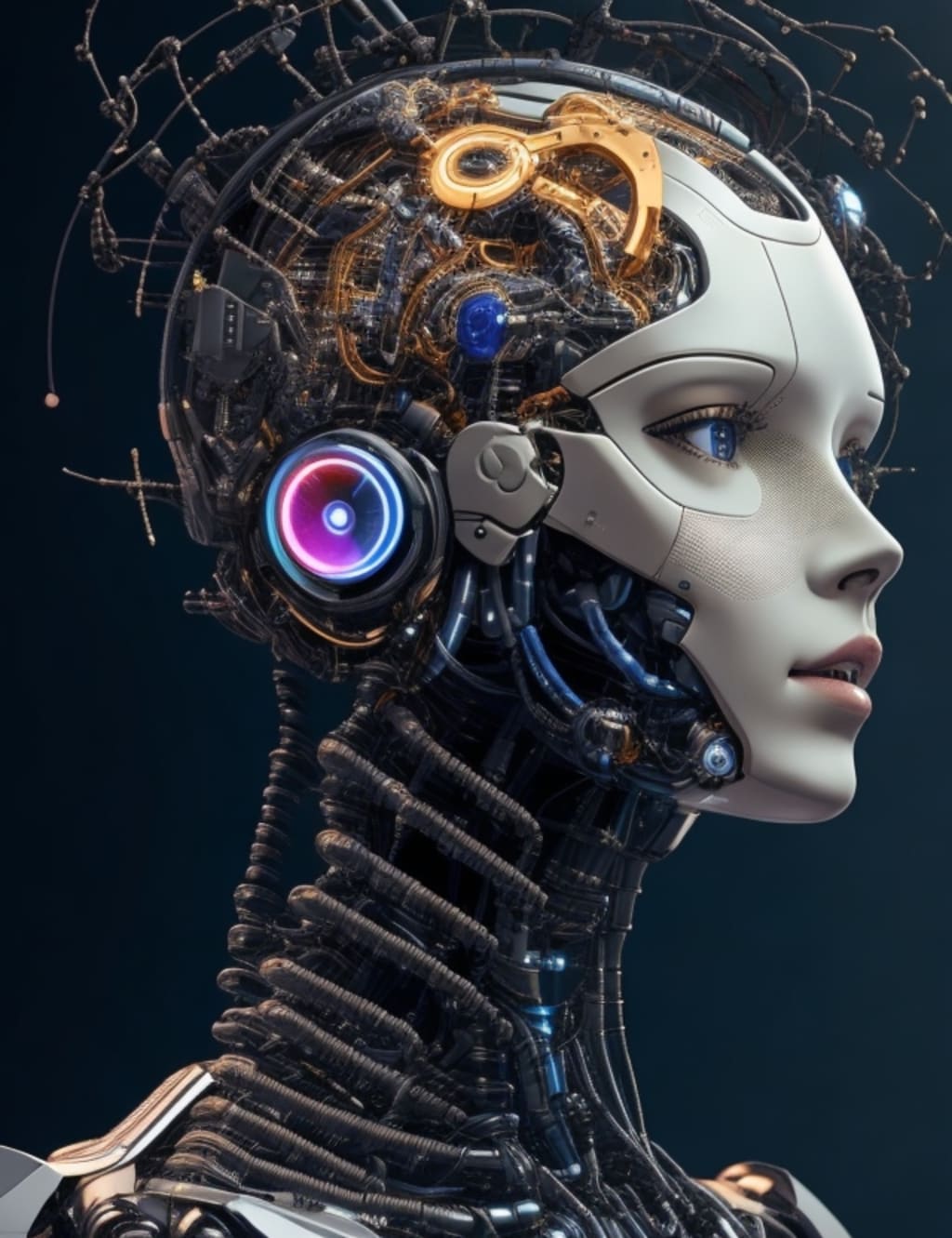
Introduction to Artificial Intelligence
Artificial Intelligence (AI) has emerged as a transformative force, revolutionizing various aspects of our lives. In this journal, we embark on a captivating journey to unravel the intricacies and potentials of this remarkable field. This exploration will take us through the impact of AI, the challenges it presents, and the endless possibilities that lie ahead.
The concept of AI can be traced back to the mid-20th century when pioneers like Alan Turing laid the foundation for machine intelligence. AI refers to the development of computer systems that can perform tasks that would typically require human intelligence. It encompasses a range of technologies, including machine learning, natural language processing, computer vision, and robotics.
The Rise of AI in Everyday Life
In recent years, AI has infiltrated our daily routines, becoming an integral part of our lives. AI-powered virtual assistants, such as Siri and Alexa, have revolutionized the way we interact with technology. These assistants can answer questions, provide recommendations, and perform various tasks with voice commands. Moreover, AI algorithms analyze our preferences and behaviors to deliver personalized recommendations in areas like entertainment, e-commerce, and social media.
AI has also made significant strides in transportation, with the development of autonomous vehicles. Companies like Tesla and Waymo are pioneering self-driving car technology, which has the potential to improve road safety and reduce traffic congestion. These vehicles leverage AI algorithms and sensors to navigate roads, detect obstacles, and make real-time decisions.
However, the rise of AI in everyday life raises ethical considerations and privacy concerns. For example, the collection and analysis of personal data to power AI systems can raise questions about privacy and data protection. Ensuring transparency and accountability in AI algorithms becomes crucial to maintain user trust and prevent biases in decision-making processes.
AI in Business and Industry
AI's impact on the business and industry landscape cannot be understated. Organizations across sectors are leveraging AI to gain a competitive edge, optimize operations, and develop groundbreaking products. Machine learning algorithms are used to analyze vast amounts of data, enabling businesses to extract valuable insights and make data-driven decisions.
In manufacturing, AI-powered robots and automation systems are transforming production lines. These robots can perform repetitive and physically demanding tasks with precision, efficiency, and consistency. This results in increased productivity, improved product quality, and reduced costs.
The retail industry is also experiencing the influence of AI. Personalized recommendations and targeted advertisements, powered by AI algorithms, enhance the shopping experience for consumers. AI-driven chatbots provide instant customer support, addressing queries and resolving issues in real-time.
Financial institutions are adopting AI to streamline operations and enhance fraud detection. AI algorithms analyze financial data to identify patterns and anomalies, enabling timely detection of fraudulent activities. Moreover, AI-powered robo-advisors assist individuals in making investment decisions based on their financial goals and risk appetite.
Despite the numerous benefits, implementing AI in business and industry presents challenges. Organizations must overcome barriers like data quality, integration with existing systems, and the need for specialized AI talent. Additionally, ethical considerations surrounding the use of AI, such as algorithmic bias and job displacement, need to be carefully addressed.
AI in Healthcare: Revolutionizing the Future of Medicine
The healthcare industry stands on the cusp of a revolutionary transformation fueled by AI. From diagnostics to drug discovery, AI has the potential to improve patient outcomes, enhance clinical decision-making, and tackle global health challenges.
In diagnostics, AI algorithms can analyze medical images, such as X-rays and MRIs, to detect anomalies and assist healthcare professionals in accurate diagnoses. AI-powered systems can process vast
amounts of patient data, including medical records and genetic information, to identify patterns and predict disease risks.
Precision medicine, which tailors medical treatments to individuals based on their unique characteristics, is also being revolutionized by AI. Machine learning algorithms can analyze genetic data, medical history, and lifestyle factors to develop personalized treatment plans. This approach enables more effective and targeted interventions, leading to better patient outcomes.
AI is also transforming the field of drug discovery. Traditional drug development processes are time-consuming and expensive. AI algorithms can accelerate this process by analyzing vast amounts of scientific literature, genomic data, and molecular structures. This enables researchers to identify potential drug candidates and predict their efficacy with greater accuracy.
While the potential of AI in healthcare is promising, challenges related to privacy, security, and regulatory compliance need to be addressed. Ensuring patient data privacy and maintaining the integrity of medical records is paramount in AI-driven healthcare systems.
AI and the Future of Work
As AI continues to evolve, concerns about job displacement and workforce dynamics loom large. While some jobs may be automated, new opportunities and job roles are emerging. It is crucial to understand the intersection of AI and human labor to prepare for the future of work.
Automation, enabled by AI, has the potential to streamline routine tasks, freeing up human workers to focus on more creative and complex endeavors. For example, in manufacturing, robots can handle repetitive tasks, while human workers can concentrate on tasks that require problem-solving skills and creativity.
AI-powered tools and platforms are also empowering individuals to upskill and reskill themselves. Online learning platforms leverage AI algorithms to personalize learning experiences and recommend relevant courses based on an individual's skill gaps and career goals.
The collaboration between humans and AI is becoming increasingly important. AI systems can augment human capabilities, assisting in decision-making processes and providing valuable insights. Human-AI collaboration is evident in sectors like healthcare, where AI algorithms support clinicians in diagnosing and treating patients.
However, to ensure a smooth transition in the workforce, investments in education and training are necessary. Preparing individuals for jobs that require advanced technical skills, critical thinking, and adaptability will be crucial in the AI-driven future of work.
Challenges and Risks in the AI Landscape
While AI promises great potential, it also brings forth significant challenges and risks. Ethical considerations, bias in AI algorithms, the accountability of AI systems, and the impact on privacy and security are key concerns that need to be addressed.
Algorithmic bias, for example, can occur when AI systems exhibit discriminatory behavior based on factors like race, gender, or socioeconomic background. Bias can be inadvertently introduced during the data collection and algorithm development phases. Ensuring diverse and representative datasets, as well as continuous monitoring and evaluation of AI systems, can help mitigate bias.
The ethical implications of autonomous systems are another area of concern. As AI advances, the deployment of autonomous vehicles and robots raises questions about liability, decision-making in critical situations, and the potential for unintended consequences. Ethical frameworks and guidelines are essential to ensure responsible development and deployment of autonomous systems.
Transparency and explain ability of AI systems are crucial for building trust and understanding. Black box AI models, where the decision-making process is opaque, can hinder accountability and make it difficult to address biases or errors. Developing explainable AI approaches and establishing regulatory frameworks for AI deployment can address these challenges.
The Road Ahead: Uncharted Territories and Exciting Frontiers
In the final chapter, we gaze into the future and speculate on the untapped potential of AI. Emerging trends such as explainable AI, federated learning, and quantum computing offer exciting frontiers for exploration.
Explainable AI aims to provide transparency in AI decision-making processes, making it easier to understand how and why an AI system arrived at a particular outcome.
This is particularly crucial in sectors like healthcare and finance, where decisions can have significant implications for individuals and society.
Federated learning, on the other hand, enables the collaborative training of AI models without sharing sensitive data. This decentralized approach allows multiple organizations or devices to contribute to the model's development while ensuring privacy and data security.
Quantum computing has the potential to revolutionize AI by solving complex problems at an unprecedented speed. Quantum algorithms and quantum machine learning hold promise in addressing computational challenges that are beyond the capabilities of classical computers.
The future of AI also encompasses the social, economic, and geopolitical impacts. As AI systems become more integrated into society, questions of governance, regulations, and the distribution of benefits arise. Ensuring that AI technologies are developed and deployed in an inclusive and equitable manner is essential to mitigate potential risks and disparities.
This journal serves as a comprehensive guide to understanding the vast landscape of AI, its applications, and the transformative journey that lies ahead. As we embark on this voyage, we gain a deeper appreciation for the power of AI and its potential to shape a brighter future for humanity. Through responsible development and conscious decision-making, we can harness the potential of AI to address global challenges, improve lives, and create a more sustainable and inclusive world.
About the Creator
SHEIKH
Masterful Wordsmith | Crafting Captivating Narratives | Enchanting readers with versatile writing style & captivating stories.
Reader insights
Outstanding
Excellent work. Looking forward to reading more!
Top insights
Compelling and original writing
Creative use of language & vocab
Easy to read and follow
Well-structured & engaging content
Excellent storytelling
Original narrative & well developed characters
Expert insights and opinions
Arguments were carefully researched and presented
Masterful proofreading
Zero grammar & spelling mistakes






Comments
There are no comments for this story
Be the first to respond and start the conversation.